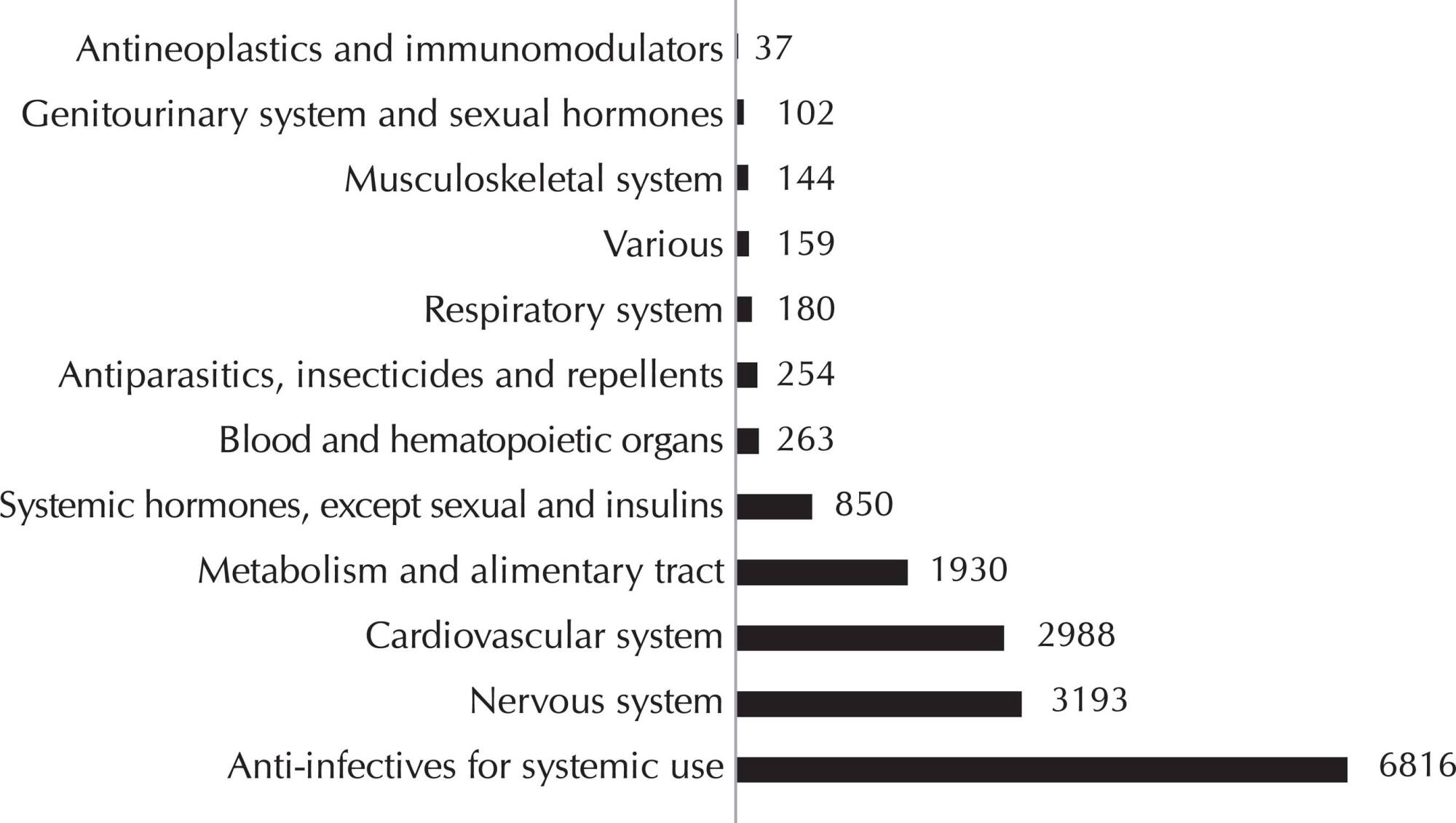-
ORIGINAL ARTICLE
Enteral diet therapy: use of the Lean Healthcare philosophy in process improvement
Revista Brasileira de Enfermagem. 2019;72(suppl 1):235-242
02-01-2019
Resumo
ORIGINAL ARTICLEEnteral diet therapy: use of the Lean Healthcare philosophy in process improvement
Revista Brasileira de Enfermagem. 2019;72(suppl 1):235-242
02-01-2019DOI 10.1590/0034-7167-2017-0746
Visualizações0ABSTRACT
Objective:
To identify the nonconformities of the enteral diet therapy process.
Method:
Exploratory case study, using as a theoretical framework the philosophy of Lean Healthcare in an inpatient unit of a large hospital in Minas Gerais State. The sample consisted of 19 professionals from the multidisciplinary team involved in the enteral nutritional therapy process and the unit's documentary sample. For the data collection, we used a semi-structured script, participant observation and documentary analysis.
Results:
There were eight nonconformities related to enteral diet therapy. During the participant observation, there was a lack of a management model that seeks the continuous improvement of the process, as well as resistance to change.
Conclusion:
Although enteral diet therapy is important in the patient's evolution, there are adverse events that could be prevented and the Lean philosophy assists in the identification of process nonconformities.
Palavras-chave: Cost ReductionEnteral NutritionHealth ManagementQuality ManagementQuality of Health CareVer mais -
ORIGINAL ARTICLE
Status and nutritional therapy in elective and emergency neurosurgery patients
Revista Brasileira de Enfermagem. 2019;72(1):73-80
01-01-2019
Resumo
ORIGINAL ARTICLEStatus and nutritional therapy in elective and emergency neurosurgery patients
Revista Brasileira de Enfermagem. 2019;72(1):73-80
01-01-2019DOI 10.1590/0034-7167-2017-0491
Visualizações0Ver maisABSTRACT
Objevect:
To evaluate the Nutritional Status (NS) and follow the Enteral Nutritional Therapy (ENT) of patients in neurosurgical intervention.
Method:
Cohort study in emergency or elective surgery patients with exclusive ENT. Anthropometric measurements (Arm Circumference (AC and Triceps Skinfold (TSF)) were measured on the first, seventh and 14th day. For the ENT monitoring, caloric/protein adequacy, fasting, inadvertent output of the enteral probe and residual gastric volume were used.
Results:
80 patients, 78.7% in emergency surgery and 21.3% in elective surgery. There was a reduction in AC and Body Mass Index (BMI) (p>0.01), especially for the emergency group. The caloric/protein adequacy was higher in the emergency group (86.7% and 81.8%).
Conclusion:
The EN change was greater in the emergency group, even with better ENT adequacy. Changes in body composition are frequent in neurosurgical patients, regardless of the type of procedure.
-
PESQUISA
Oral drugs at a hospital unit: adequacy for use via enteral feeding tubes
Revista Brasileira de Enfermagem. 2016;69(5):847-854
01-01-2016
Resumo
PESQUISAOral drugs at a hospital unit: adequacy for use via enteral feeding tubes
Revista Brasileira de Enfermagem. 2016;69(5):847-854
01-01-2016DOI 10.1590/0034-7167-2015-0081
Visualizações0ABSTRACT
Objective:
to describe the profile of standardized oral drugs at a hospital unit and assess their adequacy for use via enteral feeding tubes, according to recommendations from the literature.
Method:
descriptive study, with data on drugs collected from the Pharmacy Service Dispensing System. Specific recommendations for the use of these drugs via enteral feeding tubes were found after searches in literary databases, books, manuals, guidelines and package insert collections.
Results:
among the 236 dispensed oral drugs, 86% were in solid form; of those, 32 were "non-crushable", with the liquid form available at the institution. Twenty-eight drugs with potential interactions with enteral nutrition were identified. Sixty percent of those presented specific recommendations on their administration via enteral feeding tube.
Conclusion:
the joint participation of multidisciplinary nutritional therapy and care teams and the implementation of programs for continuous training are suggested strategies for the prevention of potential problems in the administration of drugs in the hospital setting.
Palavras-chave: CathetersEnteral NutritionFood-drug InteractionPatient SafetyPharmaceutical PreparationsVer mais



